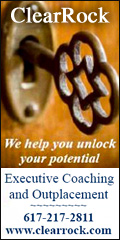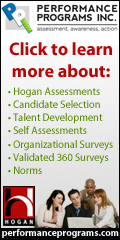NEHRA News
Northeast Human Resources Association
Whether you are impacted by a change or a "change-maker," change can be exhilarating and exciting, and at the same time create stress, confusion, and concern. Change creates uncertainty as you and your colleagues move from where you are to where the change is taking you. In all likelihood, projects temporarily slowdown or come to a complete stop. Budgets freeze. Priorities shift.
Colleagues and team members who leverage the use of their MBTI® personality type preferences when managing change can help themselves and co-workers stay on course and focused on priorities. Below are some personality-based change management tips and how to appreciate certain natural preferences.
1. When it feels as though change is something done to you. For most corporate employees, change can happen a lot and it is frequently unexpected. Many corporate decisions may be kept private for a variety of financial, legal, or strategic reasons. Yet when it hits, it can hit hard. As you reflect on your priorities once a change hits, knowing what you and your colleagues tend to focus on during the change will help you as you revisit your priorities.
- Colleagues with a preference for Feeling tend to be empathetic and compassionate. These individuals can "step into" a situation and see the impact of the change on your priorities from your perspective. They can quickly understand how you feel and use this vantage point to create ideas that help you manage the impact that change has on your priorities, in ways that deeply resonate with you.
- Colleagues with a preference for Thinking tend to be analytical and logical. These individuals can "step out" of a situation and help you see the impact of the change on your priorities from the perspective of others, as well as yourself. By approaching the situation with an objective view, colleagues with a preference for thinking can quickly help you see a balanced picture. They use this vantage point to help you weigh pros and cons of the situation and create ideas that help you manage the impact the change has on your priorities.
2. When you are the person creating the change. Our fast-paced world demands change and in their leadership roles, colleagues create change in order to make progress, remain competitive, and ensure their organization’s relevance. Whether you are the key decision maker in moving forward on an acquisition or relocating offices to another floor in your building, knowing how colleagues may prefer to work to achieve the end product of the change can provide seamless implementation.
- Colleagues with a preference for Judging tend to be scheduled and systematic. These individuals can help change-makers take an intentional approach to understanding the impact the change will have on the priorities of others. By seeing the change as an opportunity to re-establish and re-plan priorities, change-makers can minimize the stress a change can create and help move co-workers from chaos to closure.
- Colleagues with a preference for Perceiving tend to be open, flexible, and loose. These individuals can help change-makers take a lithe approach to understanding the impact the change will have on the priorities of others. By seeing the change as an opportunity to integrate new ideas and points of view, change-makers can help co-workers ensure an updated set of priorities are relevant and impactful.
Personality type allows individuals to appreciate and utilize different preferences to effectively make progress when a change is expected or unexpected, impacting priorities. Next to change, nothing is as permanent as the human need to help colleagues, and one of the best ways to do so is through the use of personality preferences.
Ed Evarts is the practice leader at Evarts Coaching, an organization focused on coaching mid-senior level business professionals in corporate environments. Ed presents the Success at Work™ professional development series with Beth Kennedy and in partnership with NEHRA. The program focuses on three key competencies – communication, change, and conflict in organizational environments.
On September 11, 2012 we are repeating the best selling program: Employee Engagement: 10 Transformational Steps that will Change Your Culture.
Learn from one of the nation’s leading engagement experts, Bob Kelleher, on the 10
Employee Engagement steps that will transform your culture. Attendees will bring back to their organizations the
latest practical employee engagement processes and methodologies and walk away
with over 30 practical Engagement Tools.
As an example of the outstanding tools you’ll receive, we’ve attached a link for a complimentary tool, Bob’s Communication Protocol--an essential engagement, communication, and alignment tool. Click here for access to the free tool.
Attendees will also receive a complimentary copy of Bob’s book, Louder Than Words, the nations’ #1 Employee Engagement book.
Bob Kelleher is an award winning author, thought leader, keynote speaker and consultant. Kelleher travels the globe sharing his insights on employee engagement, leadership, and workforce trends. Engaging the different generations is a key topic in his keynote presentations and prominently featured in his books, "Louder Than Words, 10 Practical Employee Engagement Steps...that Drive Results!" and soon-to-be released "Creativeship, A Novel for Evolving Leaders."
Bob's best practices are culled from his years of consulting with "best-in-class" companies, along with his experience working in the "C-Suite" for a Fortune 500 global professional services firm as Chief Human Resources Officer. He was also Chief Operating Officer and EVP of Organizational Development for an international consulting firm. As Founder and CEO, of The Employee Engagement Group (http://www.employeeengagement.com/), Bob helps leadership teams better engage their employees and drive profitable growth.
For more information, and to register, CLICK HERE.
For more information or to sign up for this opportunity, contact the NEHRA office today at (781) 235-2900 or via email at info@nehra.com.

